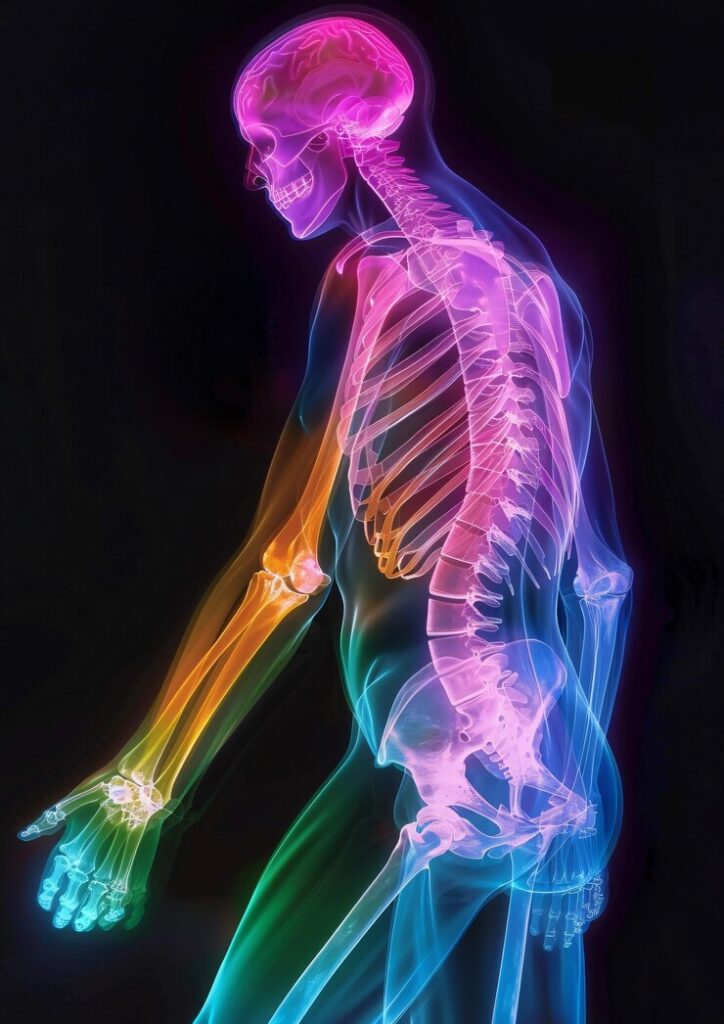CBD for Pain Relief: Exploring the Scientific Evidence
Soothing Science: CBD for Pain Relief – Exploring the Scientific Evidence
Chronic pain affects millions in the UK, impacting their quality of life and daily activities. As individuals seek alternative and complementary approaches to manage their discomfort, CBD (cannabidiol) has emerged as a popular topic of discussion. But beyond the anecdotal evidence and growing hype, what does the science actually say about Pain Relief with CBD? This comprehensive blog post will delve into the scientific evidence surrounding CBD and its potential role in alleviating various types of pain, providing you with a clearer understanding of its efficacy and how it might fit into your wellness journey in the UK.
Understanding Pain: A Complex Landscape
Before exploring CBD’s role, it’s important to understand that pain is a complex and multifaceted experience. It can be broadly categorized into different types, including:
- Nociceptive Pain: This type of pain is caused by damage to body tissue and is often described as sharp, throbbing, or aching (e.g., from an injury or arthritis).
- Neuropathic Pain: This pain results from damage to the nerves themselves and is often described as burning, shooting, or tingling (e.g., from conditions like sciatica or diabetic neuropathy).
- Inflammatory Pain: This type of pain is a result of the body’s inflammatory response (e.g., from autoimmune conditions like rheumatoid arthritis).
Understanding these different types of pain is crucial as research suggests CBD may interact differently with each.
CBD and the Endocannabinoid System: A Key Player in Pain Modulation
The potential for Pain Relief with CBD is largely linked to its interaction with the body’s endocannabinoid system (ECS). The ECS is a complex network of receptors, enzymes, and endocannabinoids1 that plays a vital role2 in regulating various physiological processes, including pain perception, inflammation, mood, and sleep.
CBD interacts with the3 ECS indirectly, primarily by preventing the breakdown of the body’s own endocannabinoids and by influencing the activity of cannabinoid receptors (CB1 and CB2). This interaction is thought to help modulate pain signals, reduce inflammation, and ultimately contribute to Pain Relief.
Exploring the Scientific Evidence for CBD and Pain Relief

The scientific community has been actively investigating the potential of CBD for Pain Relief across various conditions. Here’s a look at some of the key areas of research:
- Chronic Pain: A significant body of preclinical research (studies on animals and in labs) suggests that CBD may have analgesic (pain-relieving) and anti-inflammatory effects that could be beneficial for managing chronic pain conditions. Some human studies have also shown promising results, although more large-scale, well-controlled trials are needed to confirm these findings.
- Neuropathic Pain: Neuropathic pain can be particularly challenging to treat. Some studies have explored the potential of CBD, particularly in combination with THC (which is available under prescription for medical use in the UK), for managing neuropathic pain associated with conditions like multiple sclerosis and peripheral neuropathy. While research is ongoing, some patients have reported experiencing Pain Relief with cannabinoid-based medications.
- Inflammatory Pain (e.g., Arthritis): Given CBD’s potential anti-inflammatory properties, research has investigated its role in managing inflammatory pain conditions like osteoarthritis and rheumatoid arthritis. Some studies have shown that topical CBD applications may help reduce pain and inflammation in affected joints. Further research is needed to fully understand the efficacy of different CBD formulations for arthritis-related Pain Relief.
- Multiple Sclerosis (MS) Related Pain: Sativex, a cannabis-based medicine containing both CBD and THC, is licensed in the UK for the treatment of spasticity due to multiple sclerosis, which often involves pain. This highlights the potential role of cannabinoids, including CBD, in managing specific types of pain associated with MS.
- Fibromyalgia: Fibromyalgia is a chronic condition characterized by widespread musculoskeletal pain, fatigue, and other symptoms. Some preliminary research and anecdotal evidence suggest that CBD may help some individuals with fibromyalgia manage their pain, but more robust clinical trials are necessary to draw definitive conclusions about its effectiveness for this condition.
Important Note: While the scientific evidence for CBD and Pain Relief is growing, it’s crucial to understand that research is still ongoing, and the findings are not always consistent. Many studies have limitations, and more large-scale, high-quality human trials are needed to fully understand the efficacy of CBD for different types of pain.
Different Ways to Use CBD for Pain Relief in the UK
In the UK, individuals seeking Pain Relief with CBD can explore various product formats, including:
- CBD Oils and Tinctures: These are typically taken sublingually (under the tongue) for relatively fast absorption.
- CBD Topicals (Creams, Balms, Lotions): Applied directly to the skin, these can provide localized Pain Relief for muscle aches, joint pain, and inflammation.
- CBD Edibles (Gummies, Capsules): These offer a convenient and discreet way to consume CBD, although the onset of effects may be slower due to digestion.
- CBD Vape Oil: Inhalation allows for rapid absorption, but potential respiratory concerns should be considered.
- CBD Patches: These provide a sustained release of CBD over an extended period, offering consistent Pain Relief.
The choice of product often depends on the type and location of the pain, as well as personal preference.
Navigating the UK Market for CBD for Pain Relief: Choose Wisely

If you’re considering using CBD for Pain Relief in the UK, it’s essential to choose high-quality and legal products. Here’s what to look for:
- THC Content: Ensure that any CBD product you purchase contains less than 0.2% THC, as per UK regulations.
- Third-Party Lab Testing: Look for products that have been independently tested by a third-party laboratory. This ensures the accuracy of the CBD content and confirms the absence of harmful contaminants. Check for a Certificate of Analysis (COA).
- Reputable Brands: Opt for well-established and reputable brands that are transparent about their sourcing, manufacturing processes, and testing procedures.
- Consult a Healthcare Professional: Before using CBD for Pain Relief, especially if you have underlying health conditions or are taking other medications, it’s crucial to consult with your GP or a healthcare professional who has knowledge of CBD. They can provide personalized advice and help you determine if CBD is right for you and how it might interact with any existing treatments.
Dosage Considerations for CBD and Pain Relief: Finding Your Individual Sweet Spot
There is no one-size-fits-all dosage of CBD for Pain Relief. The optimal dose can vary depending on factors such as your body weight, the severity of your pain, the type of pain you are experiencing, and the concentration of the CBD product.
It’s generally recommended to start with a low dose and gradually increase it every few days until you find the dose that provides the desired level of Pain Relief without unwanted side effects. Pay close attention to how your body responds and keep a journal to track your dosage and effects.
Potential Side Effects and Precautions
CBD is generally considered safe and well-tolerated by most people. However, some individuals may experience mild side effects such as:
- Drowsiness
- Dry mouth4
- Diarrhea
- Changes in appetite
It’s also important to be aware that CBD can interact with certain medications. Therefore, consulting with your doctor before using CBD for Pain Relief is crucial, especially if you are taking other medications.
Conclusion: The Promising Potential of CBD for Pain Relief
The scientific evidence surrounding CBD and Pain Relief is promising and continues to evolve. While more research, particularly large-scale human clinical trials, is needed to fully understand its efficacy for various pain conditions, the existing evidence suggests that CBD may offer a natural and potentially effective option for managing chronic, neuropathic, and inflammatory pain for some individuals in the UK. By choosing high-quality products, starting with a low dose, and consulting with a healthcare professional, you can explore the potential of CBD to soothe your pain and improve your overall well-being.
Frequently Asked Questions (FAQs)

1. What does the scientific evidence say about CBD for chronic Pain Relief?
Scientific evidence, including preclinical studies and some human trials, suggests that CBD may have analgesic (pain-relieving) and anti-inflammatory properties that could be beneficial for chronic Pain Relief. However, more large-scale, well-controlled human studies are needed to definitively confirm its effectiveness and optimal dosage for various chronic pain conditions.
2. Can CBD help with neuropathic Pain Relief, according to scientific research?
Research into CBD for neuropathic Pain Relief is ongoing. Some studies, particularly those involving cannabinoid combinations (including THC, which is available under prescription in the UK), have shown potential for managing neuropathic pain associated with conditions like multiple sclerosis. Further research is needed to fully understand the role of CBD alone in alleviating neuropathic pain.
3. Is there scientific evidence to support the use of CBD for inflammatory Pain Relief, such as arthritis?
Yes, preclinical studies and some human studies have investigated the potential of CBD for inflammatory Pain Relief, such as that associated with arthritis. Topical CBD applications have shown promise in reducing pain and inflammation in affected joints. While the evidence is encouraging, more research is needed to determine the most effective formulations and dosages for arthritis-related pain.
4. How does CBD potentially provide Pain Relief based on scientific understanding?
Scientifically, CBD is believed to provide Pain Relief primarily by interacting with the body’s endocannabinoid system (ECS). It can help modulate pain signals, reduce inflammation, and influence the activity of cannabinoid receptors involved in pain perception. CBD’s indirect interaction with the ECS is thought to help restore balance and alleviate discomfort.







